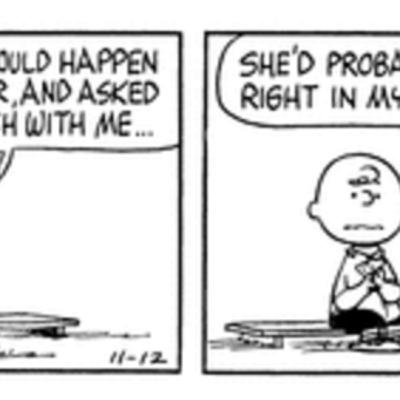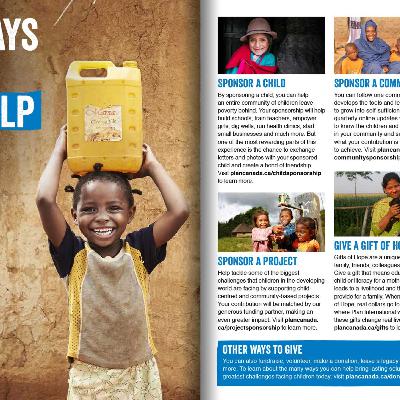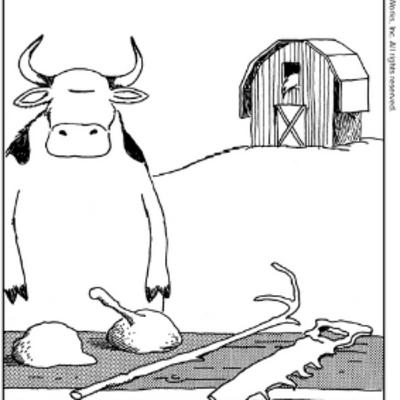Discover Found in the Struce
Found in the Struce

Found in the Struce
Author: David Reinstein
Subscribed: 0Played: 3Subscribe
Share
© David Reinstein
Description
Ideas shouldn't get "lost in the struce": they should be put on a podcast!
Explaining challenging concepts from economics, statistics, social science, data science/tech, philosophy and EA... without watering it down. You'll come away with real knowledge and insight that you didn't have before.
- Reading and discussing articles and posts; mine & others
- Short takes/short ideas, & some gripes and musings on language, society, & culture.
- Findings & themes from behavioral science, carefully considering the *evidence* (not just sensational headlines).
Explaining challenging concepts from economics, statistics, social science, data science/tech, philosophy and EA... without watering it down. You'll come away with real knowledge and insight that you didn't have before.
- Reading and discussing articles and posts; mine & others
- Short takes/short ideas, & some gripes and musings on language, society, & culture.
- Findings & themes from behavioral science, carefully considering the *evidence* (not just sensational headlines).
21 Episodes
Reverse
Reading from the collaborative Google Doc HERE (http://bit.ly/unjournal), by David Reinstein, with contributions/comments from
Edo Arad, Sergey Frolov, Georgios Kaklamanos, Paula Masuzzo, Ben Smith, Gavin Taylor, Peter Slattery, Cecilia Tilli, Paulo Crosetto, Nathan Young and others
The “Evaluated Project Repo” (aka ‘the Unjournal’): (http://bit.ly/unjournal)
a proposal for peer review/rating, archiving, and open science, aimed at…
avoiding rent-extracting publishers,
reducing careerist gamesmanship in academia,
and making research more effective.
Whether/why this particularly aligns with global priorities/effective-altruism research organizations.
Outro music (added 30 Jul 2021) from "The Third Reviewer" by David Hugh-Jones
Reading post here:
https://forum.effectivealtruism.org/posts/cPCra34aCGrYzKcDF/opinion-digital-marketing-is-under-utilized-in-ea?view=postCommentsTop&postId=cPCra34aCGrYzKcDF
As usual, reading the comments and adding some of my own.
See also CountryTime Lemonade ads, an unpaid sponsor of this episode
Reading "Why scientific research is less effective in producing value than it could be: a mapping" post in the EA Forum (and peering at some links).
Some comments and thoughts/my own experience.
Reading the comments section, especially comments from Linch Zhang, IanDavidMoss, and AllAmericanBreakfast.
Outro snip: "Magic Terrapin" by Alfie Pugh, performed by the Locked Horns
I hope to follow up on this with a reading/discussion of bit.ly/unjournal (or the EA Forum post version of this, if and when I make it)
Finishing my reading of "Intervention Report: Charter Cities by DavidBernard, Jason Schukraft" from Rethink Priorities, as posted on the EA Forum.
Whew, this was long!
I even read the comments.
By popular request (N=1), I read "Intervention Report: Charter Cities by DavidBernard, Jason Schukraft" from Rethink Priorities, as posted on the EA Forum.
- Minimal commentary and explainers (trying to cut back)
- I got through about half the report, tbc soon
I'm on "The case of the missing cause prioritisation research" by weeatquince
I get into links, comments and more. OK not more, just those things but it sounds better to say "and more".
Here's my reading and takes on the next EA Forum post (suggested by Rossa)...
If you want to engage, maybe add comments in the EA forum post itself, or as Hypothes.is comments on that post.
Also "here's the deal with me" if you want to know about me professionally.
I watched An introduction to global priorities research | Rossa O'Keeffe-O'Donovan | EA Student Summit 2020
He recommended two posts to understand the landscape. One was:
Benjamin Todd, EA Forum, "Why I've come to think global priorities research is even more important than I thought", which I read here, with some comments and explainers. I also read some of the hyperlinked content and comments.
Hope it's helpful. There are some clicking and mic-adjustment sounds. This will be fixed in the next podcast.
If you want to engage, maybe add comments in the EA forum post itself, or as Hypothes.is comments on that post.
Also "here's the deal with me" if you want to know about me professionally.
Is it hard on a face when it gets laughed in? Is this hurting the economy, and the world? The back story for some of my recent research and future plans.
Part one of ??
With a brief epilogue with the esteemed Dr. Jeroen van de Ven of the Univ. of Amsterdam.
Am I supposed to put hashtags in this thing? #losingface #gametheory #peanuts #economics #gametheory #psychology #rejectionsensitivity
First of maybe 3 episodes with some audio giving you a flavor of (my experience of) the EA Mexico Fellowship. Most of this episode surrounds my conversations with Agustin Covarrubias.
Some people might find the "Branches of AI Safety" (jump to that section) the most interesting part.
27 May 2023 -- Sorry, I see the audio ordering was wrong — my 30 second comment on Columbus should not have been at the beginning. I moved it.
Practicing what I preach = reading what I wrote... Seeing the effects of your donation and making incremental choices in EA Forum
Part of the 'giving and gifts podcast trilogy'
along with Profusion: The Big, Christmassy Data Special and
FITS "The Economics of the Gift" reading
I read and blather about "The Economics of the Gift", an essay I wrote for an interdisciplinary conference and book on "Gift Giving and the 'Embedded Economy' in the ancient world".
Part of a planned multi-part series on "reading old stuff I wrote and seeing how much I cringe".
Full essay is HERE
Ties in with
- Profusion data podcast Christmassy special
- EA forum post: seeing the effects of your donation
From the essay abstract:
This essay broadly considers gifts, giving, and gift economies, modern and pre-modern, from a mainstream (and behavioural) economics perspective. I present a selective survey of the literature focusing on six key points:
1. Commercial transactions sustained by reputation are not easily distinguishable from gift exchange economies;
2. Gift-giving allows the giver to accumulate goods that cannot be purchased commercially;
3. When the giver retains some use, experience, or control over the gift, she shares in the consumption of it;
4. Considering behavioural issues such as regret aversion, gift-giving may offer overlooked efficiencies that may balance out the deadweight losses from ‘inadequate gifts’;
5. Aggregate (anonymous) giving can be an important signal of overall group identity and character;
6. Historical modes of ‘giving under pressure’ offer insights for modern public policy and philanthropy
Finally answering the burning question!
... with only a few comments and explainers.
I finished the post, but I hope to make a part III with the footnotes and EA Forum comments on the Post
Reading EA Forum post, "Differences in the Intensity of Valenced Experience across Species" by Jason Schukraft ... with only a few comments and explainers
"Why it would matter if different sorts of animals possessed characteristically different intensity ranges of valenced experience" -- Jason
Oversimply perhaps, do some animals 'feel more pain' (and more pleasure) than others ... so which ones do we need to worry about (the most)?
This is a nice long post -- so I'll split these between 2 episodes.
Here, I read through "Cognitive Sophistication and Intensity of Valenced Experience"
I mainly made this for myself and people I'm discussing these issues with.
Audio is so/so, and I repeat myself a bit, I suspect.
But if you want to hear me ramble about measuring the relative effects of counseling and income interventions, how to measure this, and how to consider the relative value of transfers to poor vs poorer people, have a listen.
See Clearer Thinking episode HERE, and Michael Plant's site HERE
Would it be better for
$100 to go to someone living on $300 a year or
$200 to go to someone earning $500 per year?
This is a really tough choice, but one organizations like GiveDirectly need to think about. How can we consider it?
I read and discuss Toby Ord's EA Forum post and linked CEA article. And I interject, explain, and comment. A lot.
(By the way, I leave some hypothes.is comments on the latter page, if you want to engage.)
This ties into longstanding a major theoretical and empirical questions in Economics (Welfare economics, Public Choice, Development, Risk preference elicitation, Happiness). But I think it's thorny unresolved.
But practical choices must be made that rely crucially on how we value (e.g.) the above A versus B. And I really don't know how major orgs (like the World Bank, the UN, USAID, DFiD, WHO, Gates Foundation) and think tanks/research groups (like JPAL, IPA, CGDEV) consider these tradeoffs.
Get in touch (or leave a message on Anchor) if you want to add to this conversation, or have some suggested references and redings.
I read "Psychological barriers to effective altruism: An evolutionary perspective" by Bastian Jaeger and Mark van Vugt
This is relevant to my own related synthesis project "Increasing effective charitable giving: The puzzle, what we know, what we need to know next", a web-book in progress.
The paper an interesting perspective and a good take. I'm a bit skeptical of the strength of some of the empirical evidence and the way results are stated in Psych papers and syntheses.
I read some of the cited evidence, and go off on copious tangents.
If you read the paper at https://www.sciencedirect.com/science/article/pii/S2352250X21001779 and install the https://hypothes.is/ plugin, you can interact with my comments within the paper itself.
I read "Cultured meat: A comparison of techno-economic analyses"
I added some comments including a few 'what does this mean?' cries for help.
Note, I mentioned stray content in one place when it was actually a link to a google doc -- I was reading this on a black and white e-reader that didn't show this as a link.
Some highlights: Laugh at my mispronunciation of biological terms, and mixing up the Greek letters upsilon and mu.
Reading and some comments on [This post](https://forum.effectivealtruism.org/posts/EGoLAH7xaMKt9QHyA/evidence-from-two-studies-of-ea-careers-advice-interventions) on the EA Forum, which I've given feedback on in other ways.
The rules for this and all podcasts.
See the Airtable view documenting this HERE.
Podcast rules are meant to be obeyed.










!["Turismo Eficaz" (EA Mexico Fellowship 1/n episodes). Discussions with Agustin Covarrubias, a taxi driver, and a bit more. [Fixed ordering] "Turismo Eficaz" (EA Mexico Fellowship 1/n episodes). Discussions with Agustin Covarrubias, a taxi driver, and a bit more. [Fixed ordering]](https://s3.castbox.fm/ec/99/45/42346d8c0d8cfd7d227b6ebd42b06b8643_scaled_v1_400.jpg)







